I tunes books
Smashwords
Amazon
Amazon's kindle version:
http://amzn.to/2nEVWbC
Reviewers say:
"Juliet Waldron's grasp of time and period history is superb and detailed. Her characters were well developed and sympathetic."
"One of the better Richard III books..."
Crest and Motto of Richard III
On a sunny late summer morning in August, 1485, near Leicester, two armies faced one another. The King of England, Richard III, arose at dawn. Tradition, and Shakespeare, claim that he had had a bad night, although this can never be known now, 537 years later. The King often traveled with his own bed. One night earlier, he had slept in his royal bed, for he had brought it along with his baggage train from Nottingham Castle. Perhaps too large and bulky to be used in a battlefield tent, the royal bed had been left behind at an Inn in Leicester. Richard was known as a man who "slept ill in strange beds" and so preferred to maintain regularity in his sleeping arrangements.
Chaplains probably said Mass for the King on that fatal morning, as this too was standard practice on Medieval Battlefields, before he broke his fast with watered wine and bread. His esquires would have begun to armor him. His open crown, set with jewels, was set upon his helm, and then, mounted upon his favorite white charger, Whyte Syrie,* he began to direct the disposition of his army.
According to John Ashdown-Hill, Historian and member of the Royal Historical Society: ..."When John de Vere, one of Henry Tudors most experienced commanders, saw the royal army advancing to oppose them, he swiftly ordered his men to hold back and maintain close contact with their standard bearers. In consequence the rebel advance ...ground to a halt..." This manuever drew the rebel forces into close formation, with the French mercenary pikemen held in reserve. Ashdown-Hill speculates on why, at this point, the sight of his hated distant cousin sent him charging to destruction.
"Perhaps out of bravado, or from a sense of noblesse oblige, or possibly because he was suffering from a fever and not in full possession of his faculties, Richard called his men around him and then set off with them at a gallop to settle Henry's fate once and for all."
http://amzn.to/2nEVWbC
The Amazon Kindle version
Ashdown-Hill (The Last Days of Richard III) speculates on why, at this point, the sight of his cousin sent the king charging to destruction. (Certainly, Richard did not know what Henry looked like, but he would have seen his standard and known he surely stood nearby.)
"Perhaps out of bravado, or from a sense of noblesse oblige, or possibly because he was suffering from a fever and not in full possession of his facaulties, Richard called his men around him and then set off with them at a gallop to settle Henry's fate once and for all."
It was a risky move. In chess, this would be the same as sending one's king across the board to directly attack the rival king.
Richard's legendary charge came near to succeeding. Richard himself slew Tudor's imposing standard bearer, William Brandon, but this is the moment when the wily foreign mercenaries Henry had brought with him drew together in a phalanx, protecting Henry and keeping him out of harm's way. Richard's cavalry hurled themselves into the pike wall so created. Many, including Richard, were unhorsed. At the same time, the remainder of the King's cavalry came crashing in behind. The Yorkist army was now in dissarray.
John de Vere and Lord Stanley, both still hanging back--de Vere because he was an experienced soldier, Stanley, waiting to see which way the battle would go--now seized their opportunity. Stanley's men fell upon the milling mass of the royal cavalry. They caught the King on foot and he was soon overwhelmed and slain by a pack of enemy soldiers.
Richard's bravery has never been questioned, even by the Tudor chroniclers.
"King Richard was slain, fighting manfully in the midst of his enemies." - The Croyland Chronicle.
When Richard fell, de Vere wheeled and attacked the Duke of Norfolk. During the initial clash, Norfolk lost his helmet and caught an arrow in the eye. The Yorkist side had now lost both captains. The leaderless army began to collapse.
Michael Jones, whose 2016 military history, Bosworth, 1485, believes that Richard's charge, while a throw of the dice, was in fact "the final act of Richard's ritual affirmation of himself as rightful king." Ashdown-Hill says that Richard "acted in full accord with the late medieval literary tradition."
After his accession, Henry Tudor would soon confirm this first impression, as the kind of man who preferred judicial murder to a face-to-face duel. While there would soon be a host of Yorkist family members executed on various trumped up charges by him, there is no record of Henry VII even lifting his sword at the battle which would establish his famous dynasty.
What can I make of my own long fascination with this still controversial character, this long dead English King? In many ways, Richard was the last of his kind. His brief reign marked the end of the Plantagenet Kings, and from this time forward, historians habitually date the beginning of modern times. Richard's pagentory charge was a medieval aristocrat's decision to play the role of king--a leader of his men--in the most heroic fashion possible.
Henry was indeed a modern man, cut from different cloth, a man who had far less right to the throne than most of the people he exececuted, a man who had been poor and on the run, but who now intended to become rich by taking everything he could take from anyone who opposed him. The personal tale of Henry VII is a classic picture of a paranoid miser. This fruits of this monarch's gold hunger would--as is so often the case--be blown by his equally paranoid and indulged, vainglorious son, Henry VIII.
I read the Daughter of Time (by popular mystery writer Josephine Tey) when I was eleven. Richard's story as she told it--here was a man "framed" by his enemies and maligned forever after--became an overriding obsession. I can still pick up my tattered Penguin paperback and find the bedraggled white rose I dried between the pages, oh, so many years ago! Today I can still remember all the kids at summer camp whose ears I talked off on a subject most of them had never heard of. Tilting at windmills in my own nerd way, I guess.
Now, of course, I look at history--especially the kind of western history which I was taught in school--in a very different. In the great scheme of things, the innocence or guilt of an otherwise obscure English king doesn't matter much, but to this day it remains a heck of a great story.
Roan Rose is my proud contribution to the Richardian genre. Here we hear the tale of the servant Rose, one who was privy to so much, yet still survived to tell it.
Dear Rose! She is one of my favorite creations. I hope readers love her as much as I do.
~~Juliet Waldron
All my novels at Amazon
https://www.amazon.com/dp/B0089F5X3C


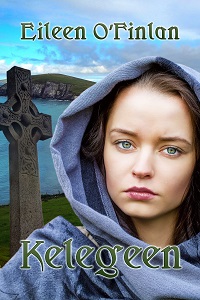
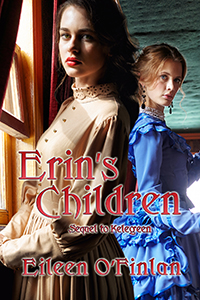



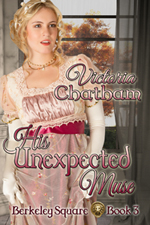
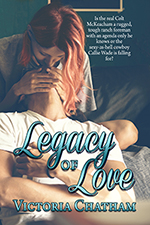

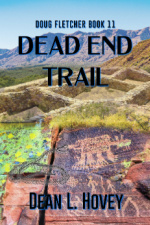



.jpg)




.jpg)









